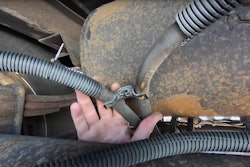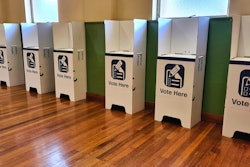Trucking news and briefs for Tuesday, Oct. 18, 2022:
FMCSA lets COVID hours of service waiver expire
The COVID-19 hours-of-service emergency declaration allowing haulers of certain commodities to operate outside the normal hours of service since March 2020 has expired.
The Federal Motor Carrier Safety Administration allowed the declaration to lapse on Saturday, Oct. 15. The agency last extended the waiver at the end of August, but only for 45 days rather than the 90-day extensions that have been common since the onset of the pandemic.
During a brief comment period last month in which FMCSA sought industry feedback on the ongoing use of the waiver by motor carriers, trucking organizations and drivers were generally split on whether it should continue or not.
The American Trucking Associations and safety advocate group the Truck Safety Coalition both said it was time for the declaration to come to an end. ATA said some of its members were concerned that the declaration was being used to abuse the regulations. TSC cited the “deplorable state of roadway safety” as a reason to end the waiver.
The Owner-Operator Independent Drivers Association said it believed the safety exhibited by carriers using the waiver should open the door for more flexibility in the hours of service going forward. A number of individual drivers also noted that the added flexibility when hauling certain COVID loads allowed them to drive when rested and rest when tired, rather than having to abide by a strict clock.
FMCSA has also taken down its web page dedicated to various COVID-19 resources, including HOS and CDL waivers.
Virginia rep intros bill to repeal entry-level driver training rule
Congressman Bob Good (R-Virginia) earlier this month introduced a bill is the U.S. House of Representatives to repeal the FMCSA’s Entry-Level Driver Training (ELDT) rule that took effect in February.
Good said the bill, titled the Trucking Workforce Improvement Act, would repeal “a new burdensome federal regulation on training for a commercial driver’s license.”
The ELDT final rule was published in December 2016 and, after implementation was delayed until February 2022, established minimum training standards for new CDL applicants.
“Our farmers and manufacturers need to move their products to market, but they are facing a shortage in the trucking industry,” Good said. “The last thing Washington should do in this national shortage is impose more regulations that make it harder to find new drivers.”
Good added that instead of focusing on “rebuilding the economy and putting Americans back to work,” the Biden Administration is instead “piling on unnecessary burdens and costs on jobseekers.”
Good added that the ELDT “will only deter qualified candidates, who need jobs quickly, from applying for these essential trucking positions,” adding that his bill “will remove these unnecessary regulations and put qualified applicants on the fast track to securing much-needed, well-paid jobs.”
Good’s bill follows a bill introduced in the U.S. Senate last month that would allow small fleets with nine CDL holders or fewer to skip the Entry-Level Driver Training requirement by allowing states to issue a new "Small Business Restricted CDL."












